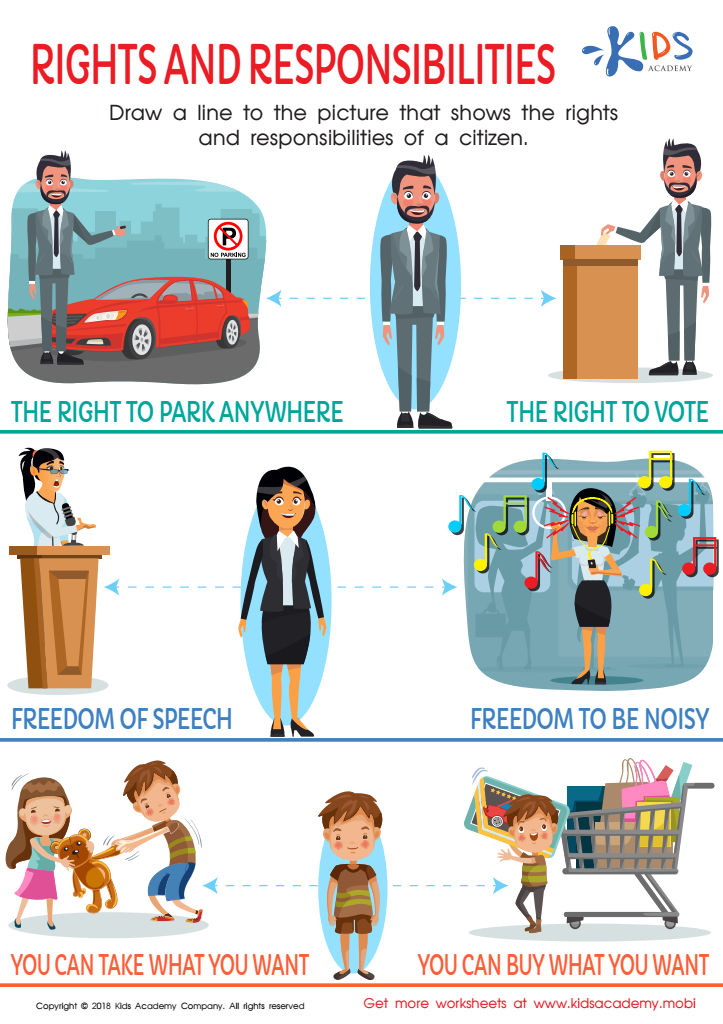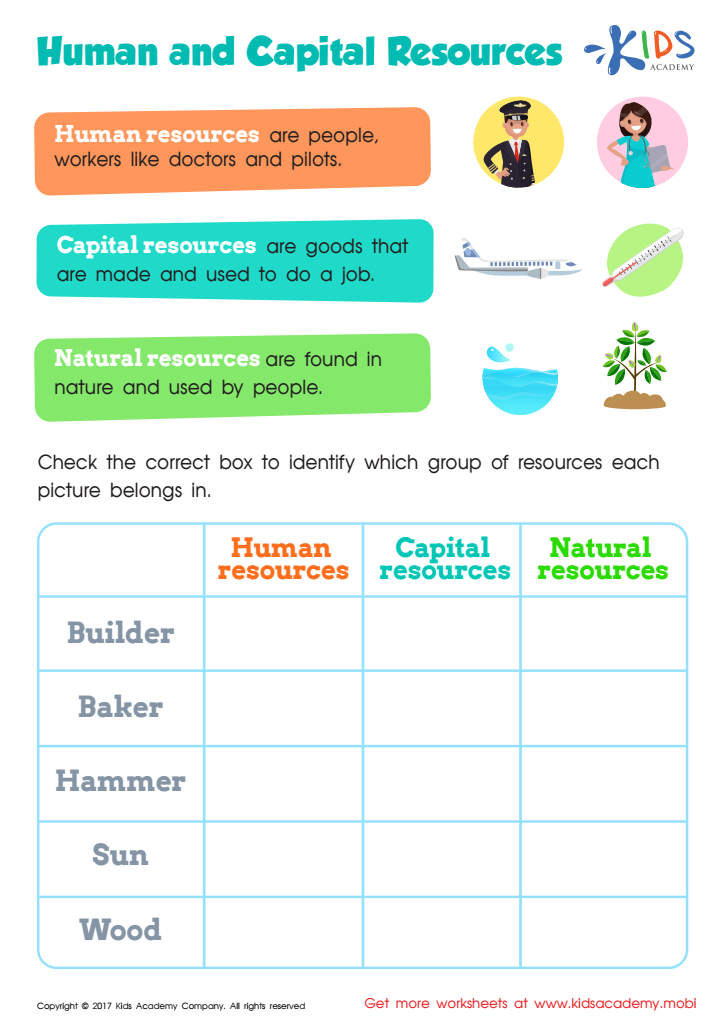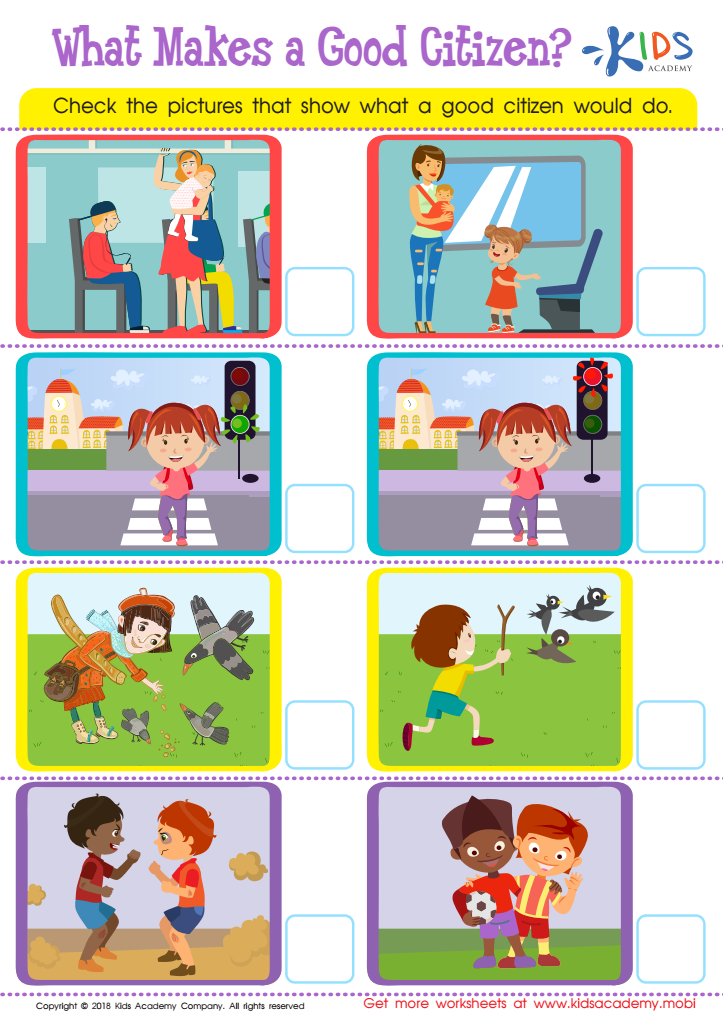Developing critical thinking Normal Social Studies Worksheets for Ages 3-8
3 filtered results
-
From - To
Unlock your child's potential with our "Developing Critical Thinking Normal Social Studies Worksheets" designed for ages 3-8. These engaging worksheets encourage young learners to analyze, question, and make connections in their understanding of the world around them. Featuring age-appropriate themes, our resources enhance cognitive skills through fun activities such as sorting, comparing, and evaluating situations. Each worksheet fosters curiosity and encourages children to think independently, making learning both enjoyable and meaningful. Perfect for at-home practice or classroom use, our materials provide the foundation for critical thinking, preparing your child for future academic success. Explore the world of learning today!


Rights and Responsibilities Worksheet


Human and Capital Resources Worksheet


What Makes a Good Citizen? Worksheet
Developing critical thinking in young children, particularly through subjects like Social Studies, is crucial for their holistic growth. For ages 3-8, children are naturally curious and eager to explore the world around them. Social Studies provides an ideal platform for fostering this curiosity by encouraging them to ask questions, analyze information, and consider different perspectives.
Parents and teachers should care about cultivating critical thinking because it equips children with essential skills for lifelong learning. By engaging in discussions about communities, cultures, and historical events, children learn to evaluate information critically and make informed decisions. This foundational skill not only enhances their academic performance but also helps them become responsible, empathetic citizens.
Moreover, critical thinking nurtures creativity and innovation. As children learn to solve problems and think independently, they become more adaptable and confident in expressing their thoughts. In an increasingly complex world, these skills empower them to navigate challenges effectively and contribute positively to society. Encouraging critical thinking in early education paves the way for self-directed learners who are engaged in their communities, aware of social issues, and equipped to continue questioning and understanding the world throughout their lives.

 Assign to My Students
Assign to My Students





















